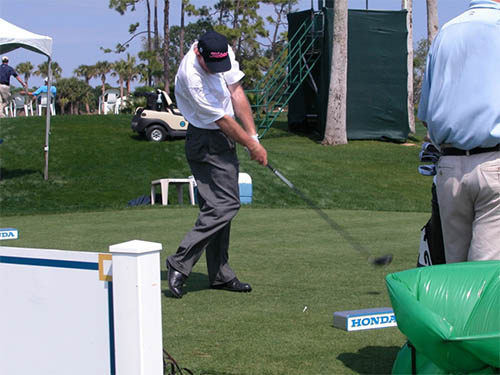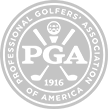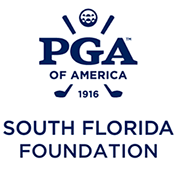Arms Vs. Body: Which Should Key Your Swing?

by Dr. T.J. Tomasi A Legacy Post by Keiser University College of Golf Senior Faculty and Director of Research (1940-2023)
I once conducted an informal survey by asking my students what they thought about during the swing in terms of swing mechanics. The responses were generally in two categories: 1) the body and 2) the arms/hands. I also used each player’s handicap. The distribution of some 40 queries was that it depended on how good a player the student was. The dividing line was roughly about a 10 handicap.
To find out what your student is thinking during the swing is important info to a golf teacher, and it worked out as follows: If they were below a 10, chances are they already learned to quiet their arms and hands, so their thoughts favored relying on the rotational motion of their body to generate both accuracy and distance. In the better swings, the arms and hands are more passive in that they react to the lead of the body as the kinetic chain unfolds. There is limited rolling of the forearms through impact because you square the clubface to the ball by the full and unrestricted release of the trail side. If the student was a double-digit handicapper +, the swing concept involves using the arms and hands aggressively while keeping the body as quiet as possible. Here the arms dictate the speed of the swing, and the hands and forearms actively time the release of the club through impact. There is a noticeable rotation of the forearms that, coupled with the release of the wrists, allows the toe of the club to pass over the heel through the hitting zone.
Body Rotation in Your Golf Swing
During your swing, body rotation is essential for generating both accuracy and power through the shot. To use it effectively, focus on initiating the movement from your core, allowing your hips and shoulders to rotate in sync during the backswing. Coiled rotation during your swing creates energy, which is released during the downswing. This coiled rotation is used to generate speed and power. Proper body rotation allows your club to stay on the intended plane, aiding and improving shot consistency and accuracy. As you rotate your body, your weight should shift smoothly from your back foot to your front foot, promoting balance and control through impact. Keeping your arms and hands relaxed while the body leads the swing enhances your ability to square the clubface at impact, resulting in more accurate shots. Avoid over-rotating, as this can throw off your balance and cause mishits. By maintaining a controlled and balanced rotation, you’ll maximize both power and precision in your swing.
Watch a video on the College of Golf YouTube channel to learn more about body rotation in your golf swing.
Using Your Hands and Arms in Your Golf Swing
Your hands and arms play are a crucial part of the speed and timing of your golf swing. As you start your downswing, your arms guide the speed by controlling the club’s acceleration, ensuring it builds momentum as you approach impact. While your body generates the power, your hands and forearms are responsible for actively timing the release of the club through the ball. The release is where your wrists unhinge, and the forearms rotate, allowing the clubface to square up at the perfect moment. If you release too early, you risk losing power and accuracy; too late, and you’ll likely push or pull the shot. The key is to have a smooth transition between your arms leading the swing and your hands guiding the club through impact. By syncing the movement of your arms with your body’s rotation, you’ll not only generate speed but also improve shot control. Proper timing of the release is essential for creating that crisp, powerful contact that sends the ball straight down the fairway.
Takeaway
This polling suggests that the hit instinct leads the novice initially astray and must be muffled by attention, early on, to the rotational body release sequence characteristic of first-rank players.

PGA Tour player Frank Lickliter showing proper forearm rotation – KUCOG
Even just after impact, the forearms of PGA Tour player Frank Lickliter haven’t rolled over yet.
Learn more!
Want more tips? If you want to take your game to the next level, contact our team at Keiser University’s College of Golf & Sport Management today. With our dedication and experience, we can elevate your game to new heights together. Give us a call today at 888-355-4465.














